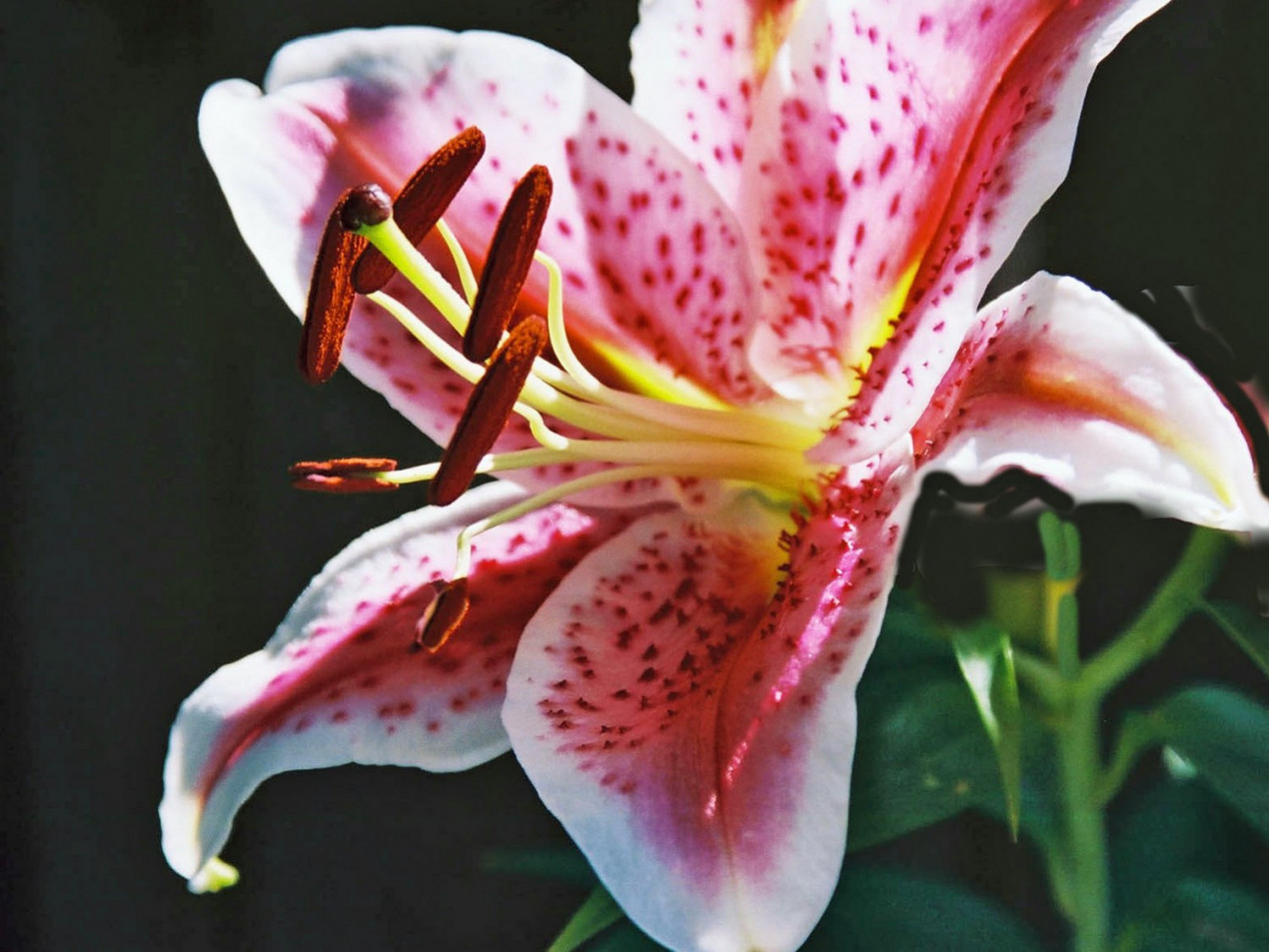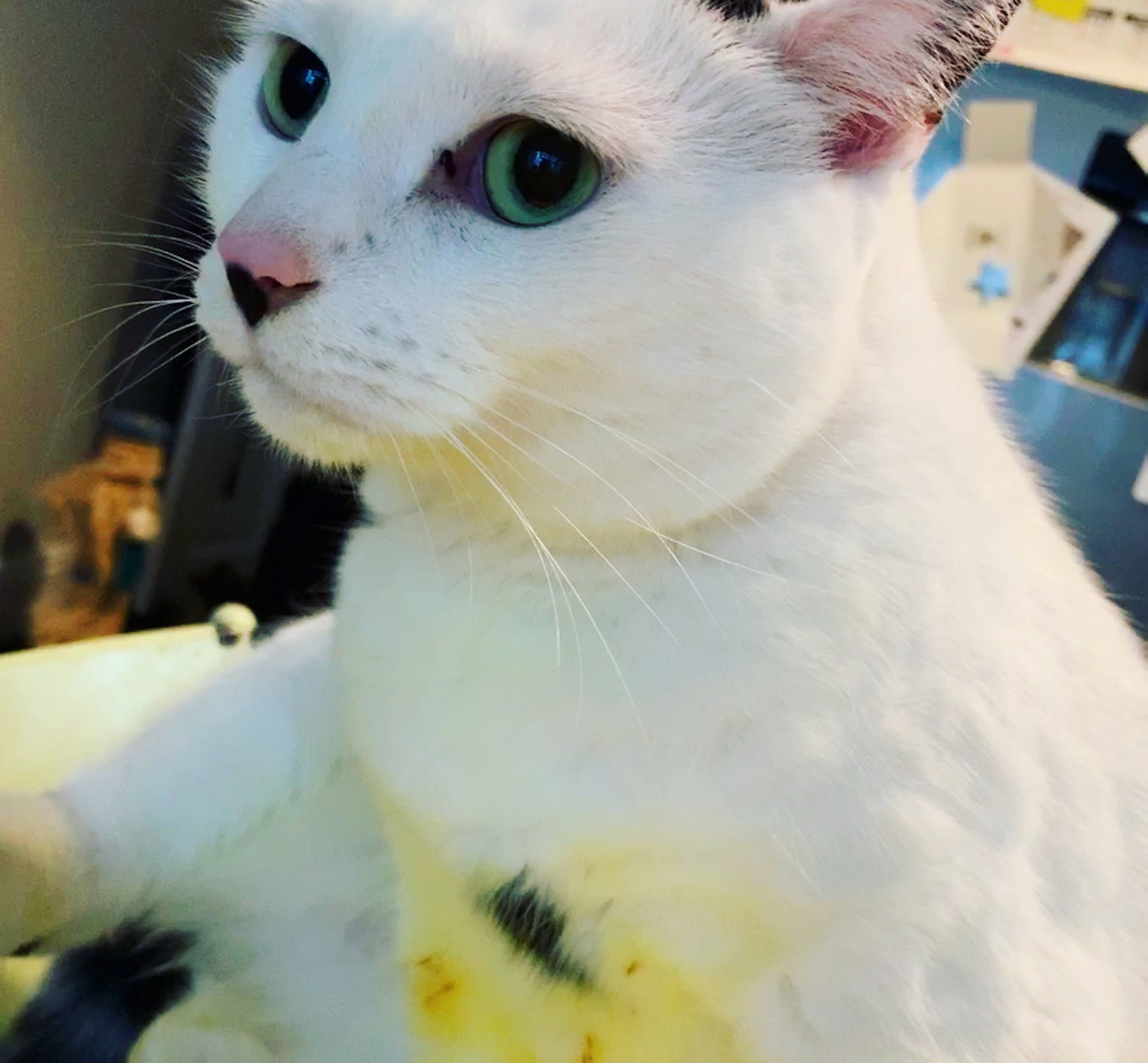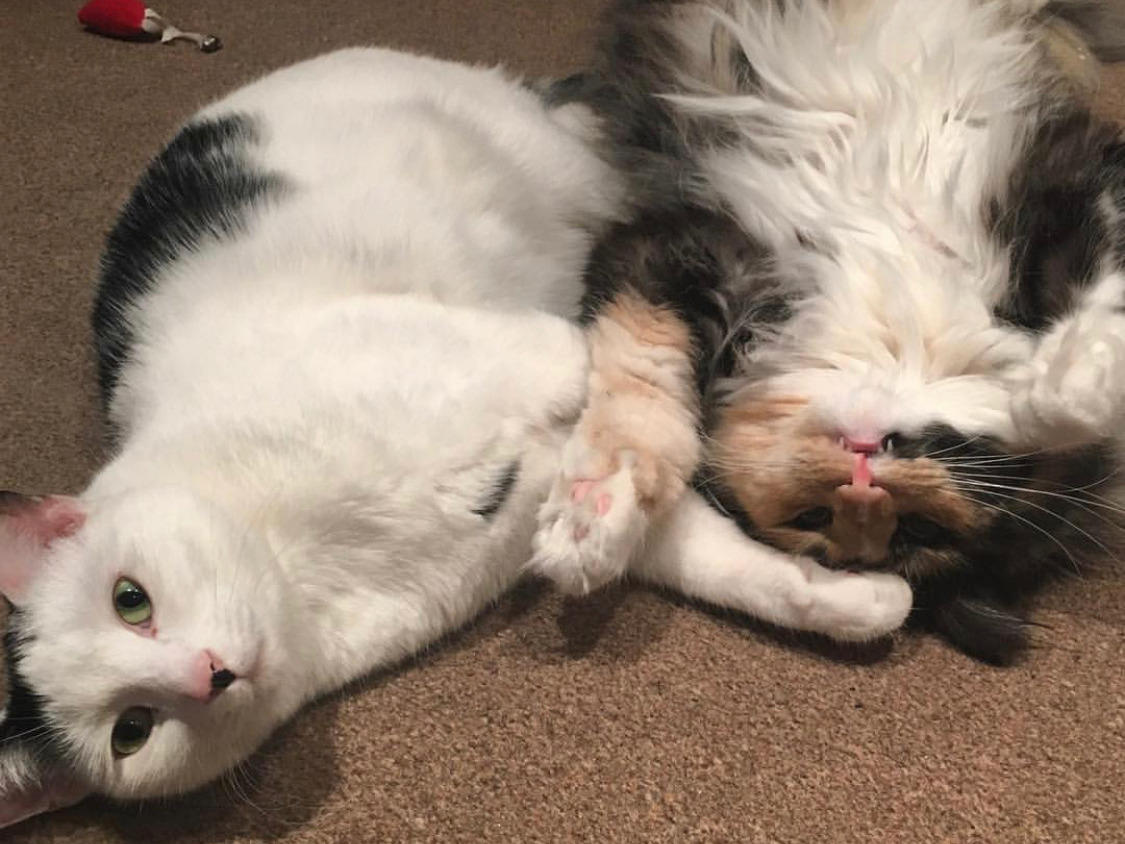
Poppy needs intensive veterinary treatment after ingesting toxic flower
A cat owner has warned others about the dangers of lilies after her pet almost died from licking the potentially deadly flowers.
Four-year-old Poppy was so covered in the lily pollen, it had turned her fluffy white fur yellow.
Thankfully, after a dash to Vets Now, Poppy recovered. But now relieved owner Amber Lomax, from Manchester, is warning others of just how lethal the plants can be.
The warning is particularly relevant at the moment when millions of pets are spending much more time at home because of the current coronavirus lockdown.

All parts of a lily plant, which are popular at Easter, are considered toxic and even small amounts can cause severe poisoning.
“If you have a cat, it’s just not worth the risk of having them anywhere in the house,” said Amber, 28, who has had Poppy since she and husband Matthew adopted it as a rescue kitten from their vet.
The couple had been given the lily plant as a gift and, knowing of the dangers, they thought they had got it safely out of Poppy’s way.
“We had put it on a top shelf where she had never even tried to reach before, even though she is quite adventurous as she was found in the wild as a kitten,” said Amber.
“There wasn’t even anything for her to access it from, so we no idea how on earth she managed to get up there. But she had and then pulled it down.
“When I came down in the morning, she was absolutely covered in lily pollen. Hardly any of her was left white.
“Although I couldn’t tell what she had actually eaten, I checked the internet and saw that even if she hadn’t had much, it could still be really dangerous.”

Amber called and then rushed Poppy straight to the Vets Now clinic in Warrington. Like all Vets Now clinics and hospitals, it’s open every night and on weekends and bank holidays.
Amber was quickly assessed by the veterinary team and given intravenous fluids, activated charcoal and had her renal levels closely monitored over a 48-hour period.
Thankfully, following the intensive treatment, Poppy was well enough to go home.
“Some species of lily are extremely poisonous to cats,” said Dave Leicester, head of clinical intelligence at Vets Now.
“They can cause severe diarrhoea, convulsions, acute kidney failure and even death.
“What makes them particularly dangerous is that all parts of the plant are toxic and even small ingestions, such as a leaf or petal, or even water from a vase containing lilies, can be potentially fatal.
“Cats can swallow a toxic amount just by grooming after brushing against the flowers. We’d strongly urge all cat owners against having any species of lily in the house.”
You might also be interested in:

It’s a warning Amber, who also has another cat, Lola, fortunately unaffected, is keen to back.
“It was such a relief to get her back as you think the worst,” said Amber. “With hindsight, we’d never have had it and we wouldn’t wish anyone to go through what we did.
“I can’t imagine how awful it would be for an owner to have their cat die from this.”
Under the UK government’s coronavirus restrictions, veterinary practices have been confirmed as essential services and vets have been added to the list of key workers.
However, while clinics and hospitals are allowed to stay open, face-to-face contact has been reduced and guidance from the veterinary surgeons’ regulatory body, the RCVS, has restricted veterinary care to emergency treatment only.
